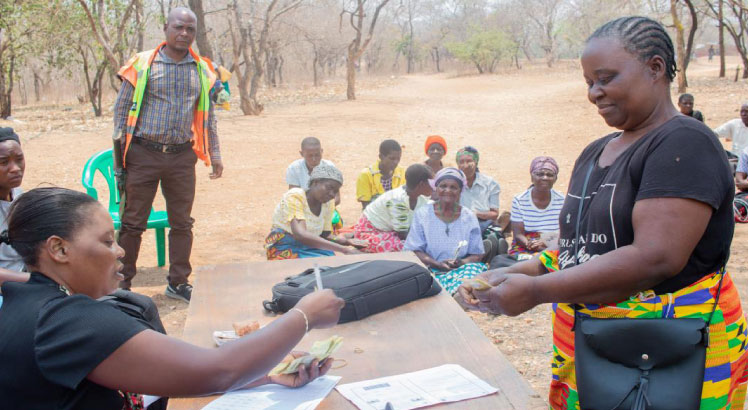It is sad to see the unspeakable damage that Cyclone Freddy has caused to life and property in the Southern Region.
Recovering from such damage will take a lot of emotional, time and financial costs.
This tragedy has revealed a lot about us, Malawians, as a people.
One of the untold stories is that we are reactive from head to toe. Early warnings were relayed by the Department of Climate Change and Meteorological, but both authorities and citizens waited till tragedy struck to do something about it.
The result is the immerse damage we have experienced this far.
We have also been exposed as a disorganised society that cares less about future occurrences, so citizens choose to build in disaster-prone areas and decision-makers fail to enforce laws that prohibit this.
The tragedy exposes how insensitive and careless we are. I cringed seeing people standing on a bridge over fast-running waters, with some taking photos and videos at their own risk.
Many others stood by the riverbanks watching the water levels rise by the minute. And then there were those who were busy sharing photos of dead bodies stuck in debris. Utter insensitivity!
My focus, however, is on the lessons we must draw from this whole tragedy.
As we sympathise with and assist those affected, we cannot look away from the real problem.
Are we going to go back to business as usual after this as if nothing happened?
I know we can do so, but, no, we should not!
At personal level, some of the survivors have bought land and erected homes in disaster zones, including riverbanks and mountain slopes. This trend is common in cities.
It appears those who settle in such areas hope that either disasters the size of Cyclone Freddywon’t happen again or reach their settings when they occur.
Wrong!
With continued environmental change caused by human activities, several studies show that climate change is real and it is not going anywhere.
That leaves us with one choice: Each one of us, the powerful and powerless alike, must adaptto the impacts of climate change.
As citizens, let us avoid meddling with the environment becausemother nature fights back.
Let us avoid settling is danger zones prone and let us plant more trees, especially in bare grounds, on river banks and covering mountain slopes.
The trees do not only cool our planet and refresh the air we breathe, but also protect our settlements from strong winds, floods and even heatwaves.
Those in power have perhaps the biggest responsibility to ensure that Malawians adequately prepare for and adapt to climate change.
Having strong and effective departments like DCCMS, which forewarned the nation, must not be taken for granted.
For two weeks,the nation should have mobilised temporary shelters, evacuation plans and other relief resources for those to be affected.
This may sound easy on paper, but the government should have forced people in prone areas to move to safer places. The State machinery has the capacity and power to do so. Governing entailssafeguarding the citizenry using all powers necessary.
Both citizens and duty-bearers must bear in mind that preparing in advance is way cheaper than recovering from damage.
For instance, we cannot replace the over 200 lives lost to the cyclone, yet we could have protected them. With fewer resources we could have moved affected poipulations out of harms’ way as opposed to spending billions after the loss and damage at the expense of competing priorities.
Just think of it, if we prepared in advance, all this finger-pointing and cheap shots being fired at our leaders and other people should not have been there.
Only if we were proactive. n
The post Don’t be reactive to disasters first appeared on The Nation Online.
 Moni Malawi
Moni Malawi 

